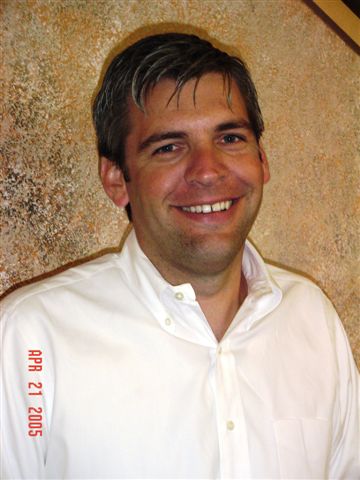
I just finished reading Andrew Chaikin’s book about the Apollo program entitled “A Man on the Moon.” This is a fantastic read, especially for someone my age who “missed out” for the most part on the most exciting piece of America’s space program. Having been born in 1970, I of course missed the first landing on the moon in 1969, and was blissfully ignorant of the five other landings that finished up in 1972. At this age, men having walked on the moon –the moon – has always just been a fact of life. I feel cheated for not having been born at an age where such a fantastic voyage was still just a possibility.
This is a great book for reliving the excitement and wonder of what is surely the greatest exploration missions undertaken by man. The book is a fantastic narrative of who the Apollo astronauts were, how they made it to the moon, and what they did there. But putting the amazing adventure and science aside, what the Apollo program really is is an example of an enormous undertaking done right:
“It was being part of a team that was dedicated to something that transcended individual aspirations. That’s what Apollo was. It was thousands of people who were willing to work day and night…You can’t imagine what that’s like compared to an every day experience. “
- Ken Mattingly, Apollo 16
“The Lesson,” as Chaikin explains of Apollo, “is that we can do difficult things, when the objective is clearly defined, and when enough people and funds are dedicated to accomplishing it.” I am struck by what a huge, wonderful, and unquestionably good thing this was, accomplished on the backs of literally thousands and thousands of people who all said to themselves, “it won’t fail because of me.”
Of course, reading this book every page you’re continually struck with the thought, “why did we stop?” Men have not walked on the moon now for thirty-four years. As one of the astronauts points out in the book, the moon has a surface area one quarter that of the Earth’s. Why should we think we have it figured out because we visited it in six small places? If mankind is to explore space further, it inevitably will re-start with the moon. There is no Mars landing without first revisiting the moon and “setting up shop.”
The real tragedy of the Apollo program is how we just abandoned it and all the knowledge gained with it. You might think that since we did it once that we could, with a little elbow grease and a few greenbacks, accomplish it again. You’d be sadly mistaken. In truth, everyone who made Apollo is gone. The scientists, the engineers are all retired or dead or both. You may think there’s massive blueprints that NASA can just pull out of a drawer and rekindle moon missions when it pleases, but unfortunately it doesn’t work that way. As Ken Mattingly warns, “If you don’t build things, you don’t know how to build things. We can’t handle a ten-year hiatus. There won’t be anybody left.”
It’s both incredibly exciting and at the same time sad that the real action in space at the beginning of 2006 is in private space flight. Burt Rutan and SpaceshipOne have jump-started a private space industry that will eventually be mammoth. Unfortunately the achievement has nothing to do with exploration, but more of applied engineering. Just like any “cheap revolution,” as Rich Karlgarrd calls it, the reduction in price of anything really good will foster it’s increase use. Space tourism will come to the masses eventually because so many “rich” people are willing to finance an as yet un-built private space ship fleet by committing $200,000 of their own money today.
While any space enthusiast has to be excited by the coming onset of a private space industry and its associated price deterioration, there still remains a role for a publicly financed space program. In a word, “exploration.” Thomas Jefferson opened up a whole new world for the United States when he financed Lewis and Clarke’s expedition through the West. You could say that over time adventurers would have found the same routes, but exploration and scientific discovery is sometimes better when done in the name of a people. I think the world would be well served by another Jefferson or Kennedy pushing us to explore further.
What I really wish is that I’d been old enough during the Apollo program to have had that “holy-s***, they did it!” feeling. Now that it’s so far in the past I worry that not enough of us sit around thinking what it’s like on the moon, or even what's next.
“It’s the moon that people want to hear about, and like all his colleagues, when [Pete] Conrad is introduced as one of the twenty-four men who went there, the question he is almost always asked is, What was it like? And he gives the neat, two second answer he developed long ago: “Super! Really enjoyed it!”



No comments:
Post a Comment